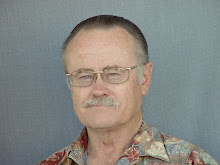How Do We Think About Disability?
As an abstract thought, a rhetorical question or topic of discussion in a graduate level special education class for teachers, it is inspiring to look at disability, particularly developmental disability, in context with those who have made great gains in their development. When we read of how some have "risen above" or "overcome" their disabilities, we are excited and determined to not let any future Temple Grandin, Donna Williams, or Steven Hawkings' slip through our care without first giving them the greatest opportunity t0 meet their full potential.
However, what do we do when we encounter a developmentally disabled person in line in behind us at the grocery store? How about sitting next to us at church? What is our response? If we see them first, do we move over, go to another line, "remember something we forgot" and go back to get it, hoping the "person" will be gone when we get back? Why? Are we afraid that mental retardation is contagious?
However, what do we do when we encounter a developmentally disabled person in line in behind us at the grocery store? How about sitting next to us at church? What is our response? If we see them first, do we move over, go to another line, "remember something we forgot" and go back to get it, hoping the "person" will be gone when we get back? Why? Are we afraid that mental retardation is contagious?
Labels: Disability


3 Comments:
I treat people with disabilites with the same respect and dignity that I would any person without disabilities. I feel that every individual is equally valuable in God's eyes.
I can definitely see what you mean by this. I have no problem with anyone who is considered "different" in everyday life. However, my mom often took me to work with her when I was young. She worked with the adult mentally retarded as an occupational therapist. I quickly learned the friendliness and normalcy of these people. Yes, some might drool, or be unable to feed themselves, but many of them had a great sense of humor or were just kind-hearted people. I also learned that they were not exempt from other emotions. I saw many get very angry or frustrated. I learned that they were often times just more honest versions of other people.
However, I also know that many people do fear the different. One of my colleagues today just told me that he was afraid of SDC students. He couldn't explain why, he just shook his head and shrugged it off. This is upsetting but something that will have to take me a more gradually slow approach to change.
My response to someone with a disability is usually accommodative without being condescending. I percieve rightly or wrongly that they may need a little more help. Sometimes, to my pleasant surprise, they are very capable of helping themselves.
I try to approach all people with an open mind and heart. As we interact with each other we will expose our strengths and weaknesses and hopefully be able to work out a plan of engagement that's mutually beneficial.
Post a Comment
<< Home